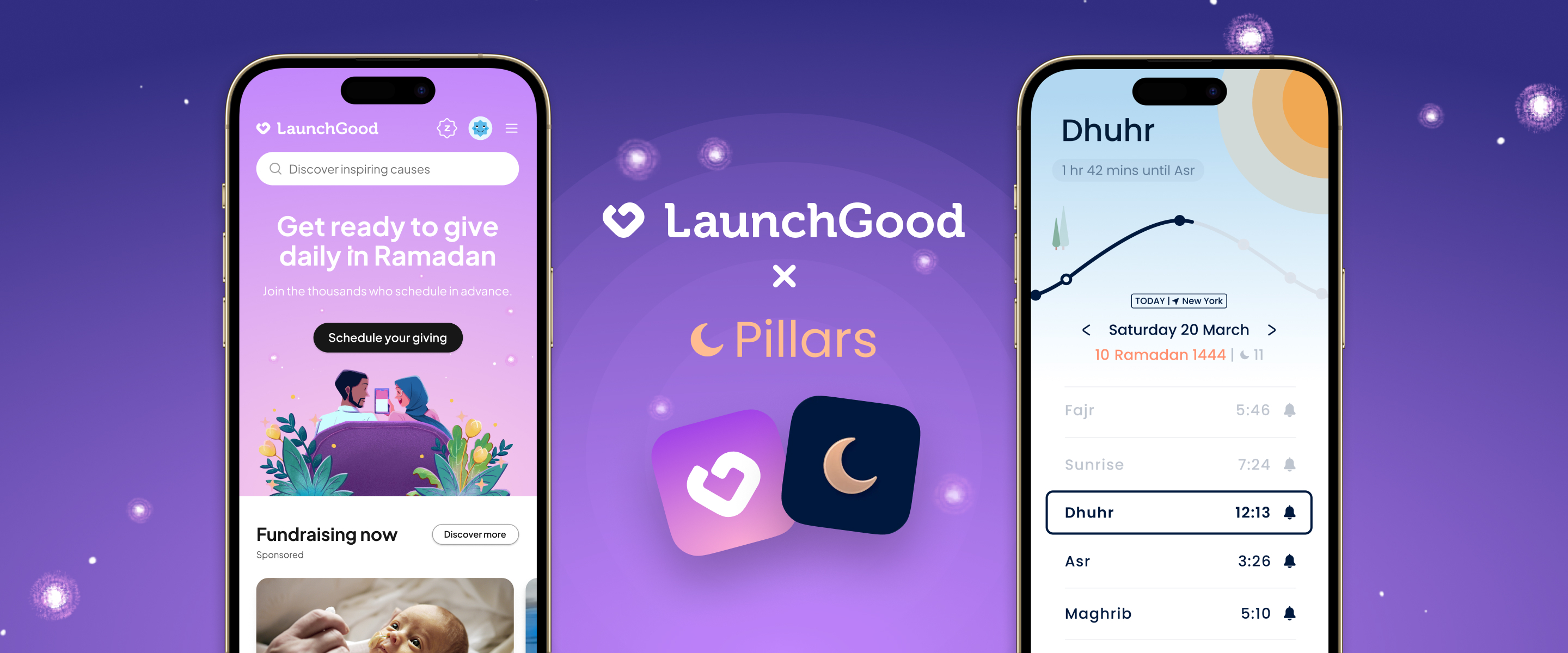Meaning and history of Qurbani
It all began with a father's sacrifice. After patiently waiting many years for a son, he was tested not only by leaving his beloved son in the desert, but later asked to sacrifice him. In the end, Allah blessed the father, saved the son, and sent a ram from heaven to be sacrificed in the son's place.
Muslims commemorate this event by offering a sacrifice of an animal. These two great men were Ibrahim عَلَیهِالسَّلام and Ismael عَلَیهِالسَّلام.
Qurbani, literally translated as "nearness," is a means for us to get closer to Allah.
The Prophet ﷺ would offer the sacrifice of two rams after the Eid prayer of Dhul Hijjah: one on behalf of his family and the other on behalf of the entire Ummah unable to perform Qurbani themselves. This latter practice is known as the “Prophetic Qurbani.”
Is Qurbani obligatory?
TLDR: If you have the means, not offering the Qurbani sacrifice is considered Makroh (disliked).
Qurbani, also known as the sacrificial offering, is regarded as a confirmed Sunnah by most scholars, meaning it is highly recommended but not obligatory. However, some scholars consider it wajib (compulsory). Among the four major Sunni Madhabs (schools of thought), at least one considers Qurbani to be an obligatory act for Muslims.
This act of worship can be performed for oneself and on behalf of others, including the deceased, the living, dependents, and non-dependents.
- Scholars who regard Qurbani as obligatory include:
- Abu Hanifah
- Shaykh al-Islam Ibn Taymiyah
- Scholars who regard Qurbani as a Sunnah include:
- Al-Shaafa'i
- Imam Ahmad
- Maalick Madhab
The opinions expressed around Qurbani have been compiled from various sources, and are not scholarly in nature. For more detailed information, please reference these detailed articles around Qurbani obligations.
Who needs to give Qurbani?
According to the Hanafi Madhab, the following individuals should give Qurbani:

- Muslims who have reached puberty;
- Non-traveling persons;
- Those who own excess wealth beyond one nisab of gold; and
- Those whose Qurbani price is surplus to their and their dependents' needs.
Can I give my Qurbani online?
Scholars have mixed opinions about giving Qurbani in countries where you are not actually living/present. Traditionally, scholars believe Qurbani should be performed locally because:
- It follows the prophetic tradition of Prophet Muhammad ﷺ.
- The person offering the sacrifice should recite Allah's name over the animal.
- It benefits the local community first.
- The person offering should partake in the meat.
However, contemporary scholars consider Qurbani in foreign lands permissible if:
- There is abundant meat in your country, and local needs are met.
- A trusted organization conducts the Qurbani according to proper rituals.
- The organization is connected to the intended beneficiaries.
- The recipient country has people in need.
- Muslims in your country are also offering Qurbani to meet local needs.
Depending on your preferred school of thought here are some ways you can donate your Qurbani online:
If you are open to donating your Qurbani online:
- Choose a country in need (we have a specific filter you can apply).
- Our new Qurbani selector can help you with this.
- Select the country where you want to donate your Qurbani
You want to offer a local Qurbani:
- You can still choose to offer a Prophetic Qurbani on top of your local obligations.
- The Prophetic Qurbani could be offered internationally inshaAllah.

Suitable animals for Qurbani
There are several animals that you can offer for Qurbani. This includes selecting from several options like:
- Goat
- Sheep
- Cow
- Camel
How many Qurbanis given per family?
A sheep is sufficient as a sacrifice for one man and his household, based on the hadeeth of Abu Ayyoob: “At the time of the Messenger of Allah (peace and blessings be upon him), a man would sacrifice a sheep on behalf of himself and his household, and they would eat from it and give some to others” (reported by Ibn Maajah and al-Tirmidhi, who classed it as saheeh).
This means one portion of the animal fulfills the obligation and earns the reward from Allah.
What is the best animal for Qurbani in Islam?
Scholars have determined that, on the hadith of the Prophet Muhammad ﷺ,"Any person who takes a bath on Friday like the bath of Janaba and then goes for the prayer in the first hour, it is as if he had sacrificed a camel (in Allah's cause); whoever goes in the second hour, it is as if he had sacrificed a cow; whoever goes in the third hour, it is as if he had sacrificed a horned ram; whoever goes in the fourth hour, it is as if he had sacrificed a hen; and whoever goes in the fifth hour, it is as if he had offered an egg. When the Imam comes out to deliver the Khutba, the angels present themselves to listen."
This shows that the reward varies by animal. A full ram carries a higher reward than a share of a cow or camel.
LaunchGood’s new Qurbani selector makes it easy to find the animal of your choice.
Qurbani is a shared journey with family and community. Plan, participate, and celebrate together. Add participant names and get updates by choosing fundraisers with these badges.

Passionate about all things marketing.




